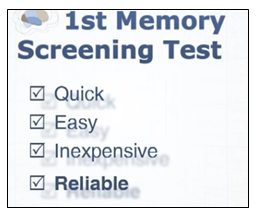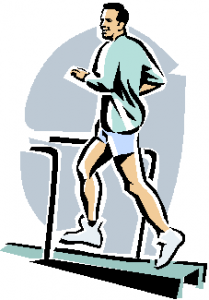Boost Recall by 50%+ Using Mnemonics
 A mnemonic is a way of organizing information to make it much easier to remember. Mnemonics are memorable representations we create to speed up learning. They are powerful and have been shown to work in a wide variety of settings. I am surprise they are not used more often.
A mnemonic is a way of organizing information to make it much easier to remember. Mnemonics are memorable representations we create to speed up learning. They are powerful and have been shown to work in a wide variety of settings. I am surprise they are not used more often.
There are several different types of mnemonics. For an excellent (and short) overview see the Nine Types of Mnemonics For Better Memory. The article covers using music, names, expressions, models, rhymes, note cards, images, connections and spellings to create more memorable representations of information. One of my favorite examples is the name mnemonic:
“ROY G. BIV = colors of the spectrum (Red, Orange, Yellow, Green, Blue, Indigo, Violet.)”
I learned this in grade school and have never forgotten it. The name, ROY G. BIV, sounds like a real name but it is unique making it very memorable. Each letter in the name can correspond to only one color so you can quickly reconstruct the entire spectrum, especially if you write the name down on a sheet or paper.
Creating good mnemonics can be a bit tricky. Just the act of trying to create a mnemonic engages us with the content and therefore speeds learning. It can make the task of memorizing more fun and if you create a powerful mnemonic you have something important to share.
Interested to hear from readers that developed their own mnemonics. Some good ones for remembering important facts about the brain would be especially appreciated.
Categories: Memory and Learning Tags:
Video & Photo Memories Impacting Your Brain?
 Most adults have watched thousands of hours of movies. I’ve often wondered how that impacts long-term memory. Do the movie memories mix with the real-world memories and change how we interpret the world, learn and make important decisions and judgments? I bet it does, big time, but I have not been able to find any detailed studies of the effects.
Most adults have watched thousands of hours of movies. I’ve often wondered how that impacts long-term memory. Do the movie memories mix with the real-world memories and change how we interpret the world, learn and make important decisions and judgments? I bet it does, big time, but I have not been able to find any detailed studies of the effects.
I did recently see a study on how taking photographs of an object can impact memory for the object. According to point-and-shoot memories, if you take a picture of an entire object you are less likely to remember details about it. However, if you zoom in on a part of the object and take a photo of the details, your memory is unaffected. The study concludes:
“This finding highlights key differences between people’s memory and the camera’s “memory” and suggests that the additional attentional and cognitive processes engaged by this focused activity can eliminate the photo-taking-impairment effect.”
With cameras in our phones and popular ways of manipulating sharing photos (e.g. Facebook, Instagram, Flickr, Pic Stich, and Pinterest) camera memories are becoming a significant part of our Next Brain.
Categories: Memory and Learning Tags:
Cognitive Vitality As We Get Older
 You will often hear that staying “mentally active” is important for maintaining a brain health as you age. A variation on the use it or lose it theme. But what exactly does being mentally active mean in this sense? Is reading a book OK and watching an action movie not?
You will often hear that staying “mentally active” is important for maintaining a brain health as you age. A variation on the use it or lose it theme. But what exactly does being mentally active mean in this sense? Is reading a book OK and watching an action movie not?
A new study tackles this question and the findings are interesting. Turns out activities such as – playing a game, listening to classical music or solving cross word puzzles – “probably won’t bring noticeable benefits to an aging mind”. That is an interesting claim as these types are activities are frequently sited as good examples of what should provide benefit.
The key is to engage in mental activities outside your comfort zone that force you to learn new skills. For example, learning photography or quilting. The general point is:
“It seems it is not enough just to get out and do something — it is important to get out and do something that is unfamiliar and mentally challenging, and that provides broad stimulation mentally and socially,…”
Doing mental activities that we have already mastered, while still worthwhile, may not be providing the brain boost and protection we need as we age.
Categories: Cognitive Decline, Cognitive Development, Lifestyle, Memory and Learning, Older Adult Tags:
More Evidence that Chocolate is Good for the Brain
 A recent study demonstrated that two cups of hot cocoa a day for a month improved brain health and thinking skills in the elderly. The study included 60 people who on average were in there 70s. Those participants with impaired blood flow showed an 8.3% percent improvement in blood flow and a 31% improvement in response time on a working memory test.
A recent study demonstrated that two cups of hot cocoa a day for a month improved brain health and thinking skills in the elderly. The study included 60 people who on average were in there 70s. Those participants with impaired blood flow showed an 8.3% percent improvement in blood flow and a 31% improvement in response time on a working memory test.
In more technical terms:
There is a strong correlation between neurovascular coupling and cognitive function, and both can be improved by regular cocoa consumption in individuals with baseline impairments. Better neurovascular coupling is also associated with greater white matter structural integrity.
Neurovascular coupling refers to the link between brain activity and the amount of cerebral blood flow. Better blood flow, better thinking. This is a new finding.
Participants consumed no other chocolate during the test.
Categories: Cognitive Decline, Diet, Memory and Learning, Older Adult Tags:
Use Your Body to Boost Mental Performance
 Cognition is embodied. That is, how well you think and learn is in part controlled by how you use your body. We have covered many examples of how this works in the Next Brain Blog including stepping back for better emotional control, talking with your hands, thinking by walking around, posture effects (e.g. folding your arms) and short-duration physical activities interspersed with study.
Cognition is embodied. That is, how well you think and learn is in part controlled by how you use your body. We have covered many examples of how this works in the Next Brain Blog including stepping back for better emotional control, talking with your hands, thinking by walking around, posture effects (e.g. folding your arms) and short-duration physical activities interspersed with study.
See Use Your Body to Improve Thinking Instantly for more details.
Now the PsyBlog offers an excellent summary in 8 Easy Bodily Actions that Transform Mental Performance. These include for example, how using a deep voice can improve abstract thinking, a power stance can improve your sense of control, and just imaging yourself walking towards an important person or object can increase a sense of mastery.
Some of these are new to me and I am actively experimenting with them. Interested to hear from readers that have tried them out.
Categories: Lifestyle, Manage Emotions, Memory and Learning, Mental Focus, Problem Solving, Training Tags:
Free Test for Alzheimer’s Related Memory Loss
 As we age our memory changes. Sometimes it is hard to know if your experiences are natural “senior moments” or early warning signs of serious memory problems such as those related to dementia, mild cognitive impairment or early Alzheimer’s disease. MemTrax was developed to help address this issue. It is a simple visual memory test you can take in 1-4 minutes. Your score is easy to understand and if you take the test on a regular basis, say every month, you can see how it changes over time.
As we age our memory changes. Sometimes it is hard to know if your experiences are natural “senior moments” or early warning signs of serious memory problems such as those related to dementia, mild cognitive impairment or early Alzheimer’s disease. MemTrax was developed to help address this issue. It is a simple visual memory test you can take in 1-4 minutes. Your score is easy to understand and if you take the test on a regular basis, say every month, you can see how it changes over time.
The initial test is free and you can see how it works in this demo. You can take the test on from your computer, iPhone or iPad.
I am interested to hear from readers that use MemTrax or other instruments that screen for neurodegenerative memory decline.
Categories: Cognitive Decline, Memory and Learning, Older Adult, Software Tags:
Boost Your Brain and Help Veterans
UPDATE: The contest ends on April 29th and they already passed the 30,000 start mark!
A reader sent me a note about a brain-a-thon Posit Science is running. You do brain training exercises and earn stars (points)  towards free subscriptions to BrainHQ for veterans with brain related inquiries. But you won’t be working alone. All your stars are added to those earned by others and if the total hits 10,000 Posit with donate 200 one-year subscriptions and if we hit 40,000 stars they will donate 500 subscriptions worth almost $50,000.
towards free subscriptions to BrainHQ for veterans with brain related inquiries. But you won’t be working alone. All your stars are added to those earned by others and if the total hits 10,000 Posit with donate 200 one-year subscriptions and if we hit 40,000 stars they will donate 500 subscriptions worth almost $50,000.
This is also a good way for you to try out some of the services for free. The brain training should help you focus attention, sharpen recall and process information faster. You get a brain boost and an opportunity to help veterans and their families. A good deal!
Categories: Memory and Learning, Mental Focus, Software Tags:
20 Hours of Mobile Gaming Enhances Cognition
 A new study found that playing video games for an hour a day, five days per week, for a month produced significant improvements in a player’s ability to track multiple objects and complete visual search tasks. That is just 20 hours of using games that are a lot of fun.
A new study found that playing video games for an hour a day, five days per week, for a month produced significant improvements in a player’s ability to track multiple objects and complete visual search tasks. That is just 20 hours of using games that are a lot of fun.
Researchers looked at the effects of action games and non-action games. The games in the study included: Modern Combat Sandstorms. The Sims3, Bejeweled 2, Memory Matrix and Hidden Expedition Everest.
There are two important aspects of this study for readers of the Next Brain Blog:
- Gaming improves specific cognitive skills on small screens and works in the wild. Participants used their iPhones and did the training outside the laboratory in a real world setting.
- Non-action games, for example Sims3 and Memory Matrix showed some evidence of improving cognitive skills. While this is a preliminary result, it is important for those that don’t like violent games.
I am interested to hear how readers are using their mobile phones to play games or use other apps to improve brain function and cognitive performance.
Categories: College Student, Memory and Learning, Perception Tags: games
Champion Level Memorization Technique
 For 16 years there has been an annual contest to determine who in the USA has the best memory. There are seven events, including a poetry event, and 53 mental athletes registered to compete in 2013. The contest is taking place today!
For 16 years there has been an annual contest to determine who in the USA has the best memory. There are seven events, including a poetry event, and 53 mental athletes registered to compete in 2013. The contest is taking place today!
The BrainWorld blog has a good post about the 2012 champion who provides insights into his success. While none of the general advice will surprise readers of the Next Brain Blog (exercise, nutrition, social well-being and mental engagement), the specific technique for memorizing long lists of items is useful.
To use the technique you convert each item in the list into a picture that is meaningful and then place the pictures in order along a path or location that is familiar. For example, if memorizing a list of numbers you could translate each number into the jersey number of your favorite football player and then visualize each player in a specific room in your house. You can then recall the numbers by doing a mental walk through of your house and look at each player’s jersey.
I am interested to hear from readers that use specific memorization techniques.
Categories: Memory and Learning, Training Tags:
The Impact of Physical Activity on the Brain
 Here in the Next Brain Blog we have reviewed many studies that demonstrate the impact physical activity has on brain function and cognitive performance. For example:
Here in the Next Brain Blog we have reviewed many studies that demonstrate the impact physical activity has on brain function and cognitive performance. For example:
Instant Memory Boost from Six Minutes of Exercise
Tai Chi Boosts Brain Volume and Performance
Exercise Once Weekly Helps Avoid Mental Decline
Short Weekly Walks Improve Intelligence
to list a few. And if that is not enough to convince you to include physical activity as part of your brain training efforts, a review of multiple research studies presented at a recent meeting of the American Association for the Advancement of Science found:
“Dozens of studies now show that aerobic exercise can increase the size of critical brain structures and improve cognition in children and older adults.”
I am interested to hear from readers that use physical activity to improve brain function and cognitive performance. What activities do you do? How frequent do you do them?
Categories: Child, Cognitive Decline, Lifestyle, Memory and Learning, Older Adult Tags: exercise
